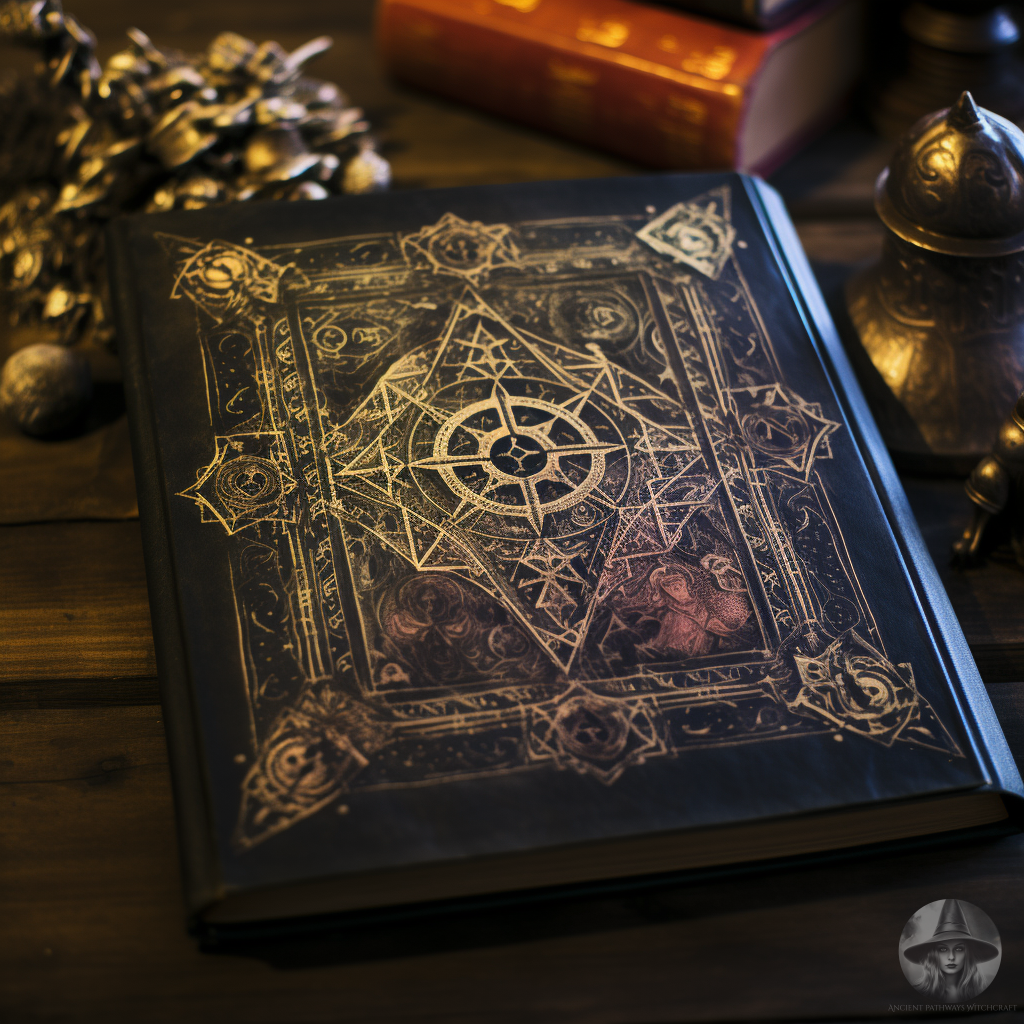Hello, my dear readers! I want to share with you a fascinating journey I've embarked upon, one that took me into the depths of language, history, and our shared mystical heritage. Have you ever wondered about the word 'magick'? Yes, that's right, 'magick' with a 'k'. You might have heard this spelling associated with the controversial figure Aleister Crowley (1875-1947), but did you know that its roots run much deeper, far pre-dating Crowley's use?
As a third-generation witch, my connection to the world of witchcraft is both personal and profound. My mother and grandmother were both alive and practicing during Aleister Crowley's time. Their sentiments towards him were far from positive, mirroring the controversy surrounding his teachings today.
Though I don't align myself with Crowley's teachings, I made it a point to study his works, to understand another person's spiritual perspectives. To me, his writings presented him as more of a narcissist than a true believer. There was an unmistakable air of entitlement within his doctrine. Despite this, I can't deny that many individuals saw, and continue to see, value in his work.
History
Diving into the history of the term 'magick', we find that it has been in use long before Crowley's time. It appears in numerous works, symbolizing the mystical, supernatural, and, of course, the magical.
'Magick' has been in use as early as the 16th century, appearing in various works long before Aleister Crowley even existed. Its use in literature symbolized the mysterious, the supernatural, the mystical, and yes, the magical.
Consider 'In Praise of Folly,' a satirical essay written by Desiderius Erasmus in 1509. Erasmus was a renowned Dutch humanist and scholar, and his work specifically mentions 'magick', stating, "And the Germans are noted for their tall, proper stature, and for their skill in magick."
That same year, English poet Edmund Spenser. Specifically, in his epic poem 'The Faerie Queene', "He to this study goes, and there amiddes. His MagickThe term "Magick," spelled with a "k," holds a unique space within the world of witchcraft and spirituality. Its origins date back to the 17th century as an alternative spelling for "magic." However, it was popularized in the 20th century by occultist Aleister Crowley to bookes and artes° of sundry kindes, He seekes out mighty charmes, to trouble sleepy mindes." This is one of 28 examples in the poem. He also sometimes spelled the word, Magicke.
Fast forward to the 17th century, 1682, and we find 'magick' in the works of the English polymath Sir Thomas Browne. In his work, THE WORKS OF SIR THOMAS BROWNE VOLUME I, Browne acknowledges the mystical aspects of numerology, saying, "I have often admired the mystical way of Pythagoras, and the secret magick of numbers." He mentions Magick 12 times in one volume.
During the same century, we see the term 'magick' in the 'The Mirror of Literature, Amusement, and Instruction. Volume 20, No. 578,' referring to an "excellent scholar, and well seen in the arte of magick."
Even as recently as the 19th century, 'magick' appeared in various contexts. For instance, in James Boswell's 'No Abolition of Slavery,' 'magick' was used instead of 'mighty'—demonstrating its versatility as a term.
Bishop Wilkins, in his work "Mathematical Magick," further illustrates this point. Though Wilkins' work doesn't predate Crowley, it's important to note that 'magick' was used here in a scientific context, broadening its application beyond the mystical realm.
The use of the term 'magick' over centuries illuminates the fact that it's not solely tied to Crowley. Instead, it's a word that has been part of our literary and cultural heritage, continuously evolving and adapting to various contexts.
Adding to the challenge of being a modern witch is the judgment and skepticism our practice often faces. This makes it all the more critical not to fight over something where one person tried to capture ownership over it, 'Magick', like any other term, will change in meaning and use over time. This is the beauty of language - it's living, changing nature.
As we use the term 'magick,' remember that we're not just referring to a concept popularized by Crowley. We are connecting to a rich, historical tapestry that spans centuries. We are casting a spell that's been cast for generations. Whether you're a seasoned witch or a curious novice, embrace 'magick' in your practice. After all, words are our spells, and 'magick' is a spell woven into our history, culture, and personal experiences.
With that, my dear readers, I hope this journey into the history of the word 'magick' has been as enlightening for you as it has been for me. It is a wonderful reminder that words, like people, have deep histories and evolve over time. And in this constant evolution, we find our shared heritage, a fascinating tapestry woven from countless individual threads. Remember, it's okay to use 'magick' – its history is as rich and varied as our own. As we continue our exploration of the mystical and unknown, let's hold on to curiosity and mutual respect, celebrating our diverse perspectives while staying rooted in our shared human experience. Until next time, may your journey be filled with light and magick!
P.S. - As I explored the intricate history and ongoing evolution of 'magick,' it's crucial to acknowledge the invaluable resources that have aided me in this journey. I am profoundly grateful to have Project Gutenberg (https://www.gutenberg.org/), an extraordinary initiative providing free access to a wealth of literature, including many of the works linked in this article. Project Gutenberg, with its vision of encouraging the creation and distribution of eBooks, has been instrumental in preserving our literary heritage. It offers over 60,000 free eBooks, with a large collection of older works for which copyright has expired. Many of these works are priceless primary sources in tracing our historical roots.






